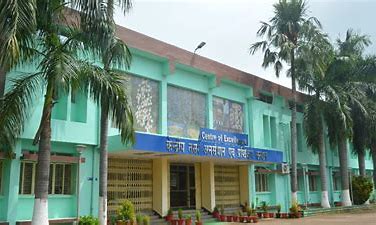Want to get the news from EleListing?
Subscribe for our newsletter here!


Introduction
The Central Tasar Research and Training Institute (CTRTI) is a premier institute dedicated to the research and development of tasar silk production and its allied activities. Located in Ranchi, Jharkhand, CTRTI is an autonomous body under the Ministry of Textiles, Government of India. Established with the aim to boost the production of tasar silk in India, the institute plays a crucial role in enhancing the quality of sericulture practices, improving the livelihood of silk farmers, and promoting sustainable silk production methods.
The institute focuses on developing new technologies, conducting research, training sericulturists, and facilitating the growth of the sericulture industry, particularly the tasar silk sector, which is indigenous to the tribal regions of India.
Mission and Vision
Key Objectives of CTRTI
Research Focus Areas
CTRTI is involved in several cutting-edge research areas related to tasar sericulture. Some of the key research areas include:
| Research Area | Focus |
|---|---|
| Silkworm Breeding and Genetics | Development of high-yielding and disease-resistant silkworm strains. |
| Sericulture Practices | Improvement in silkworm rearing practices, including optimal feeding and temperature conditions. |
| Silk Quality Enhancement | Techniques to improve the texture, color, and strength of tasar silk. |
| Disease Management | Development of methods for controlling and preventing diseases in silkworms and cocoons. |
| Eco-friendly Practices | Encouraging sustainable sericulture through organic farming techniques and reducing environmental impact. |
| Silk Processing Techniques | Research on methods to improve post-harvest processing, including cocoon spinning and dyeing. |
Training and Education
As part of its mission to promote sustainable sericulture, CTRTI organizes several training programs aimed at improving the skills and knowledge of sericulturists. These programs are designed to help farmers adopt modern technologies, better farming practices, and improve their income from tasar silk.
Infrastructure and Facilities
CTRTI is equipped with state-of-the-art infrastructure to support its research and training activities. The facilities available at CTRTI include:
| Facility | Description |
|---|---|
| Silkworm Rearing Facilities | Equipped with controlled environments for silkworm rearing experiments and training. |
| Research Laboratories | Modern labs for genetic research, disease management, and silk quality testing. |
| Cocoon Testing and Spinning | Dedicated units for testing cocoon quality, spinning techniques, and product development. |
| Training Halls | Spacious and well-equipped halls for training sessions, seminars, and workshops. |
| Farm Demonstration Areas | On-site fields for practical training and demonstration of sericulture techniques. |
| Library | A well-stocked library with a collection of books, journals, and research papers related to sericulture and silk production. |
Impact on the Silk Industry and Rural Economy
CTRTI has played a significant role in improving the livelihoods of sericulturists, particularly in rural and tribal areas. The institute’s research and training initiatives have contributed to the following:
Collaborations and Partnerships
CTRTI collaborates with several national and international organizations, research institutes, and universities to further its goals. These collaborations enable knowledge sharing, technical exchange, and the implementation of innovative sericulture practices.
Some notable collaborations include:
Conclusion
The Central Tasar Research and Training Institute (CTRTI) plays a pivotal role in advancing the tasar silk industry in India. Through its innovative research, effective training programs, and focus on sustainable practices, the institute has significantly contributed to the development of sericulture, enhancing the livelihoods of farmers and boosting the rural economy. As it continues its mission to improve silk production and promote sustainable farming, CTRTI remains a key player in the evolution of India’s silk industry, particularly in the region of Jharkhand and other states where tasar silk is a vital economic activity.
Contact Information
The institute’s dedicated efforts in research, training, and technology adoption continue to foster growth in the sericulture industry, supporting India’s economic development in the textiles sector.
| Serial# | Title | Estimated Cost | Program type |
|---|